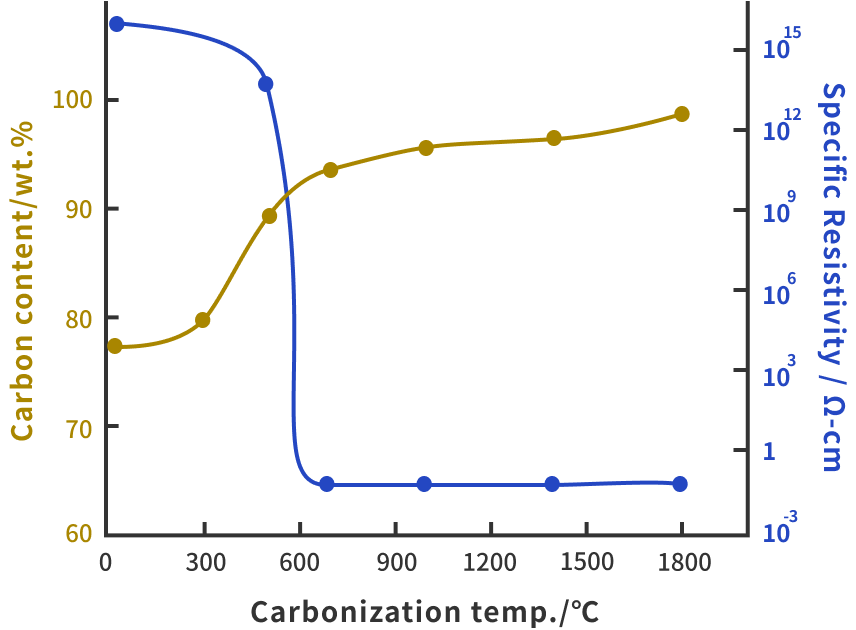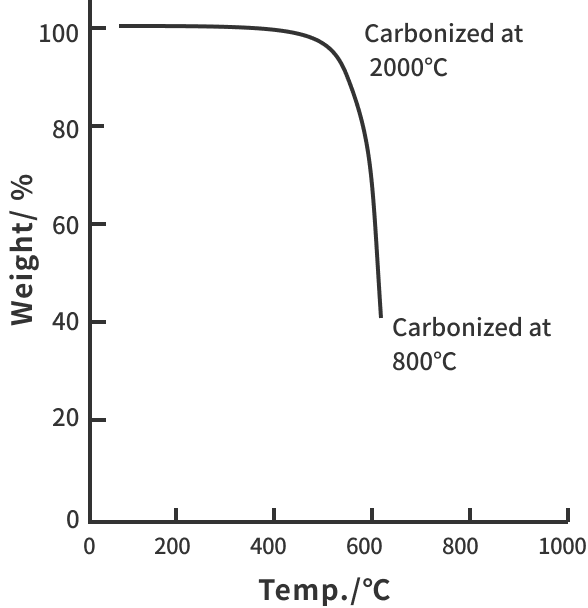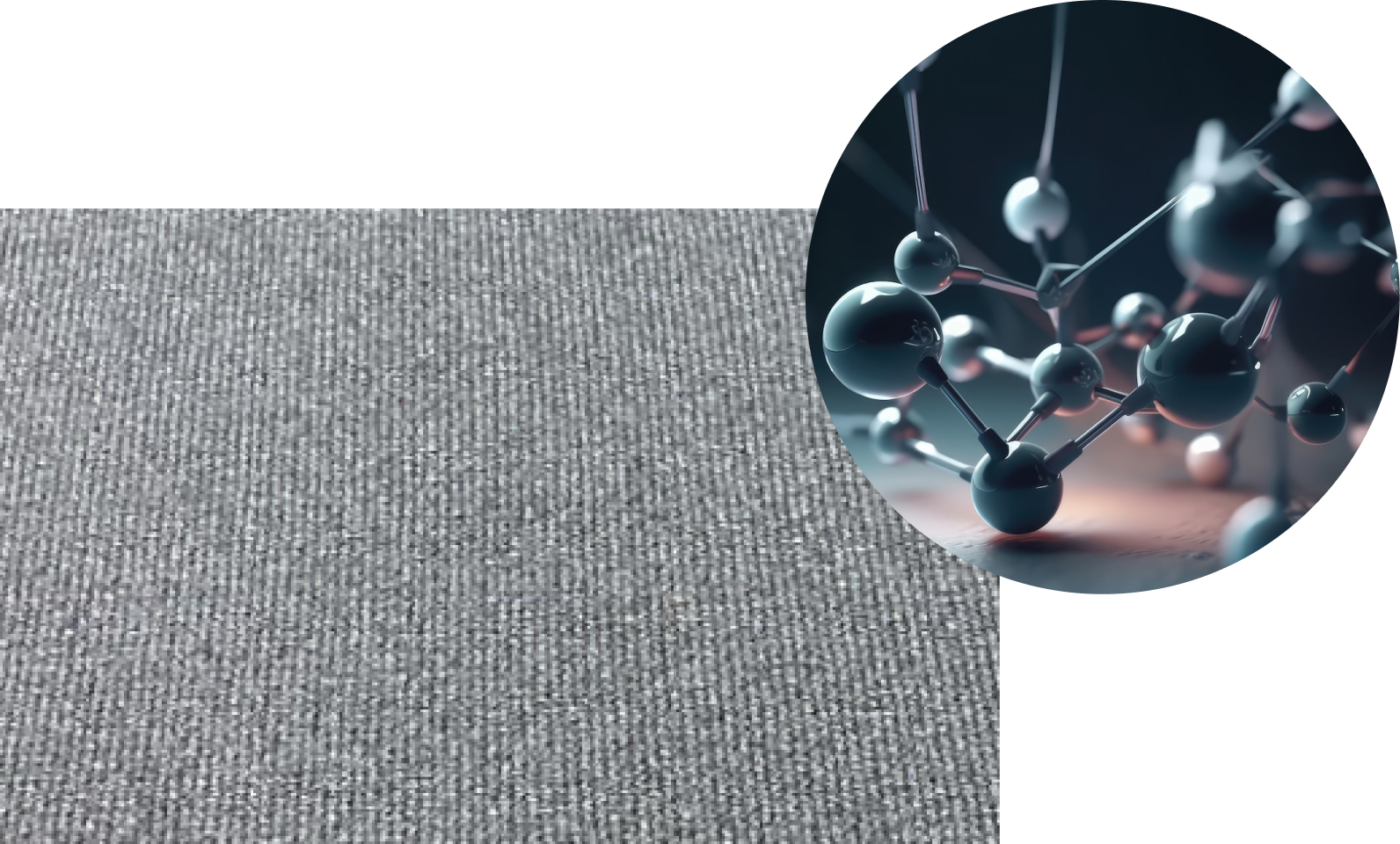- TOP
- Product lineup
- Carbon fiber
Carbon fiber

Kynol carbon fiber has an amorphous structure and has different properties from other commercially available carbon fibers. These carbon fibers have low strength, softness, flexibility, and low thermal conductivity.
Typical Properties
Typical Properties of Kynol Carbon Fiber
| Fiber diameter | 10〜40um |
|---|---|
| Specific gravity | 1.5〜1.6 |
| Carbon content | >95wt% |
| Tensile Strength | 500〜700 N・mm¯² |
| Elongation | 2〜3% |
|---|---|
| Modulus | 20,000〜30,000 N・mm¯² |
| Heat resistance | 350℃×3h … 0wt.Loss,% 400℃×4h … 2.8wt.Loss,% |
| Specific resistance | 30〜50 μΩ・m |
Typical Properties of Carbon Fibers
|
Kynol (GCI) |
Polyacrylonitrile (Standard type) |
Pitch (Isotropic type) |
||
| Specific gravity | 1.5〜1.6 | 1.7〜1.8 | 1.6〜1.7 | |
| Fiber diameter(um) | 10〜40 | 7〜10 | 10〜20 | |
| Tensile strength(N・mm¯²) | 500〜700 | 2,500~5,000 | 500~800 | |
| Modulus(N・mm¯²) | 20,000〜30,000 | 200,000〜350,000 | 20,000〜40,000 | |
| Carbon content(wt%) | 95 | 92.6 | 95.3 | |
| Initial wt. – loss temp.(TGA, air, ℃) | 430 | 486 | 416 | |
| Heat resistance in air (wt.loss %) | 350℃×3hr | 0 | 0 | 0 |
| 400℃×4hr | 2.8 | 2.4 | 3.1 | |
| Specific Resistivity(μΩ・m) | 30~50 | 10~20 | 30~50 | |
Specific Resistivity(CF)

Kynol Carbon Fiber(TG)

Due to its amorphous structure, Kynol carbon fiber has high electrical resistivity and low thermal conductivity. This makes it suitable for heat insulation material.
 Characteristics of Kynol carbon fiber are completely different from the high-strength carbon fibers that are widely available in the world. When Kynol is carbonized, it does not have a crystalline structure like acrylic carbon fiber, but instead has a non-crystalline (amorphous) structure, so it has low strength and flexibility.
Characteristics of Kynol carbon fiber are completely different from the high-strength carbon fibers that are widely available in the world. When Kynol is carbonized, it does not have a crystalline structure like acrylic carbon fiber, but instead has a non-crystalline (amorphous) structure, so it has low strength and flexibility.

